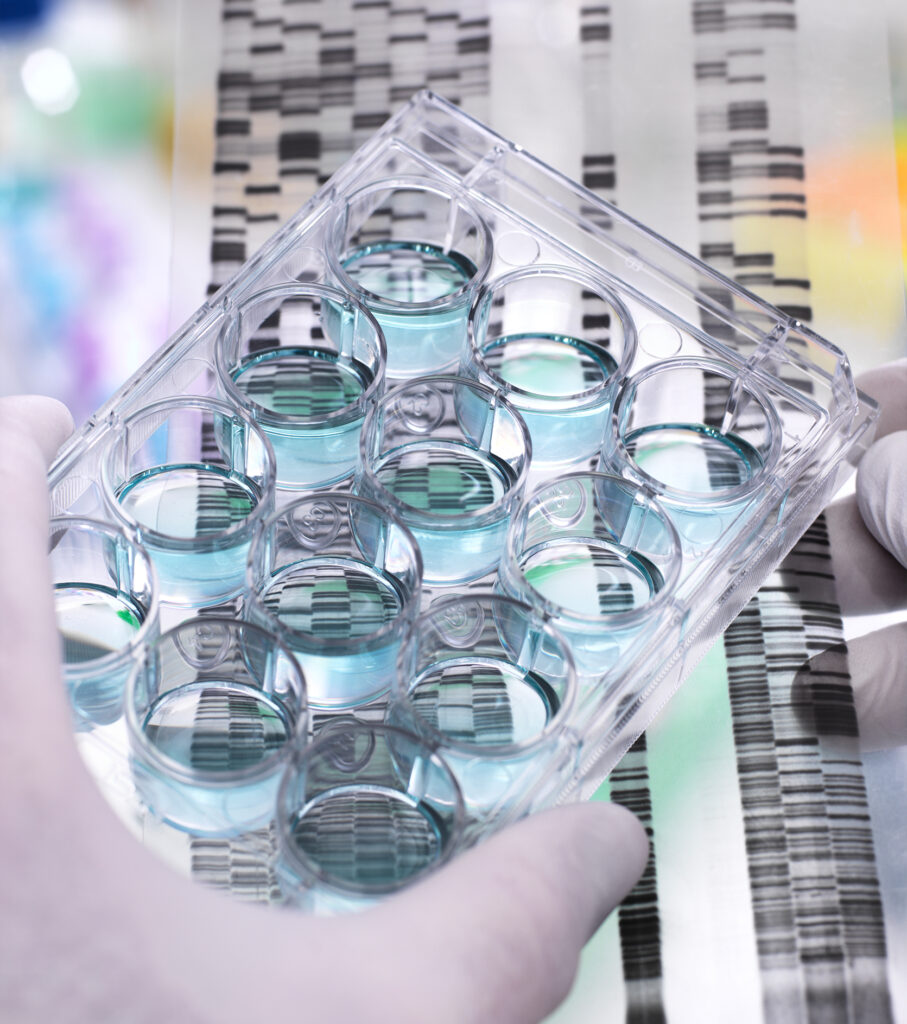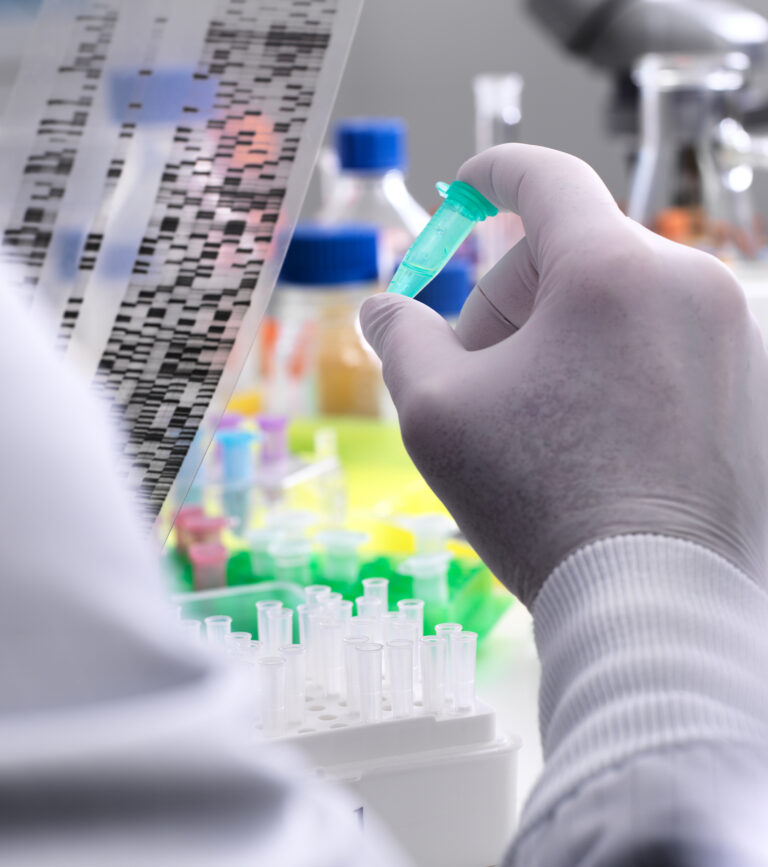
FMF Genetic Testing FMF, known as familial Mediterranean fever, is an inherited recurrent fever disease. The FMF test is a genetic test used to diagnose this disease. Usually, the diagnosis of the disease is made as a result of recurrent attacks. However, the FMF test allows diagnosis without waiting for recurrent attacks. If the ethnicity of the patient is known, the genes responsible for the disease are examined during the test. In cases where the ethnic origin of the patient is unknown, the entire gene sequence should be examined. This disease is seen in people with at least one MEFV mutation.
What is Fmf Test?
Familial Mediterranean Fever is a genetic disease caused by a mutation of Mediterranean fever. It occurs as a result of a mutation in the 781-amino acid protein called pyrin. Although the disease is seen in all ethnic origins, it is usually seen in people of Mediterranean origin.
Fever may last for 3 or 4 days, or it may cause other symptoms. At the same time, inflammation may occur around the lining of the abdomen with fever. Pain and swelling in the joints can also be counted among the symptoms of this disease. It can go away on its own without treatment, or it can lead to other important diseases such as chronic kidney failure.
How Is FMF Diagnosed?
FMF diagnosis is usually made clinically according to specific attacks. However, recently, FMF tests have also been used for diagnosis. As a result of the tests, the necessary diagnosis can be made by examining the gene sequence responsible for the disease.
Sports Genetics Components such as endurance, power, strength, muscle fiber size, muscle fiber composition, flexibility, neuromuscular coordination, which are known to be important in athletic performance, are directly related to genetics. The contribution of genetic factors to both the formation and development of athletic performance, which is a feature that can be improved with regular training, has been demonstrated by studies.
As a result of scientific studies, certain DNA sequence changes can be used to determine genetic advantages to achieve the best athletic performance. Genetic variations are uncovered that may be associated with a better fit for endurance, strength, metabolism, cardiovascular capacity, susceptibility to sports-related injuries, and individual nutritional requirements.
The importance of creating training and nutrition programs suitable for the genetic structure of the individual and team sports is increasing.
By sport genetic analysis:
• Genetic predisposition to weight lifting and endurance sports with the structure of muscle cells
• Which type of exercise is strong and advantageous aspects are determined according to the genetic profile.
• Ability to absorb oxygen through the lungs and deliver it to the appropriate muscles
• Oxidative stress level, antioxidant need, antioxidant type
• Coenzyme Q10 activation
• Risk of injury, inflammatory response
• Recovery and rest phases
• Calorie balance for maximum performance
• Creating a strategic plan for the athletic career


One of the most important health problems of our time is cancer. The most important point about cancer is that it is a genetic disease. Here, genetics and heredity must be separated. A disease may be genetic, but it may not be inherited. Not all cancers are inherited, but all cancers are caused by genetic changes. Therefore, genetic analysis is of great importance in the diagnosis and treatment.
For these reasons, cancer genetics is one of the most important issues. With new generation genetic technology and methods, it is possible to detect cancer at an early stage. Extensive screening of cancer-related genes can be done using next-generation technology. Genetic testing can better predict the risk of cancer. It allows you to decide on targeted prevention programs, make informed medical and lifestyle decisions, and provide other family members with useful information about individual risks. Another point is the molecular diagnosis of existing cancer after cancer diagnosis. This point is very important. Today, these molecular changes in the treatment of cancer are irreplaceable for effective treatment.
.
Molecular Cytogenetics (FISH) Molecular cytogenetics; expanding the scope of chromosome analysis with the contribution of molecular biology and increasing the diagnostic resolution; They are effective and fast methods that enable the detection of anomalies that cannot be diagnosed in conventional cytogenetic methods using labeled DNA probes (tiny molecules that can bind to DNA).
Molecular cytogenetics, FISH method;
Rapid Aneuploidy (Chromosome Count Anomalies)Examination by FISH from Amniotic Fluid, CVS, Bone Marrow, Peripheral Blood in Prenatal Diagnosis ,
In the Diagnosis of Microdeletion Syndromes Undetected by Normal Cytogenetic Methods
Cancer Cytogenetics
Diagnosis of Infectious Agents in Tissue
In Detailed Analysis of Changes Observed in Routine
Cytogenetic Studies
In Hematological Cancers
In Genetic Studies of Cancer Tissue / Biopsy Material
It is used in the detection of Structural and Numerical
Anomalies that cannot be detected in some Chromosome Analysis.


Clinical genetics is a specialized medical field that provides diagnostic or genetic consultation services to individuals and families at risk for a genetically based diseases. Genetic diseases can affect any system in the body at any age. The goal is to live and reproduce as normally as possible in people who are at risk of being affected by a genetic disease. In addition, many people with birth defects and / or learning disabilities are referred to genetic clinics to investigate genetic factors. Genetic services are also required for individuals who are likely to be affected by a genetic condition through child or pregnancy test programs. Genetic services may be required for those at high risk because the genetic effects of subsequent multifactorial diseases, such as diabetes and coronary heart disease, have been identified. The study of genetic factors influencing the decision of the drug prescription is becoming increasingly important activity.
After the application, the patient is assigned a geneticist. The specialist contacts the patient and preferably his/her family to collect clinical data. The specialist provides “genetic
.